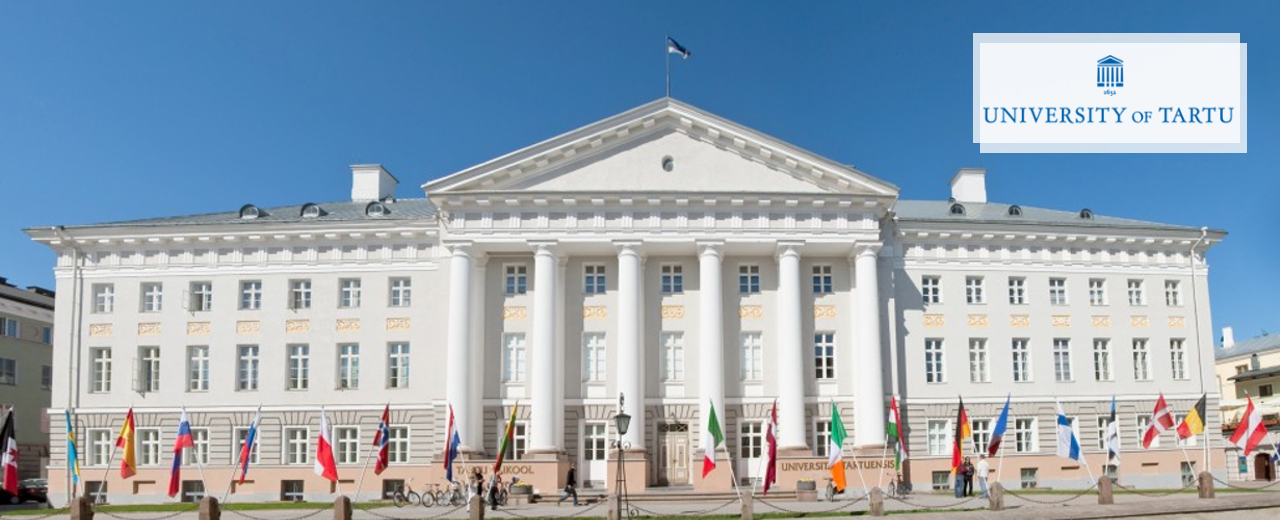UT
University of Tartu (UT):
The University of Tartu (UT) is the leading institution of higher education and research in the Baltic countries, founded in 1632 by King Gustav II Adolf of Sweden. The university has 4 faculties: Faculty of Arts and Humanities, Faculty of Social Sciences, Faculty of Medicine and Faculty of Science and Technology. There are around 13 000 students, 1000 foreign students and 1300 PhD students at UT studying in 79 BSc, 93 MSc and 35 PhD study programmes.
UT is the only university in the Baltic region that belongs to the top 2% of world’s best universities, holding the 347th position according to QS World University Rankings 2017 and 301-350 according to Times Higher Education World University Rankings 2016-2017). UT has 80 partner universities from 31 countries. UT has 3500 employees (including 194 professors), out of which 50% are academic positions. Over half of yearly PhD defences in Estonia take place at UT, in 2016. There were 120 PhD defences at UT.
The Institute of Physics is part of the Faculty of Science and Technology. The Institute of Physics has a long-term and effective cooperation with numerous research centres in Europe and around the World. The main fields of research at UT are Materials Science, Laserphysics, Plasmaphysics, Theoretical Physics, Biophysics and Environmental Physics. The Institute of Physics belongs also to three different interdisciplinary Centres of Excellence in Estonia, which are leading exploratory establishments in the field of education, science and technology.
Follow us /

